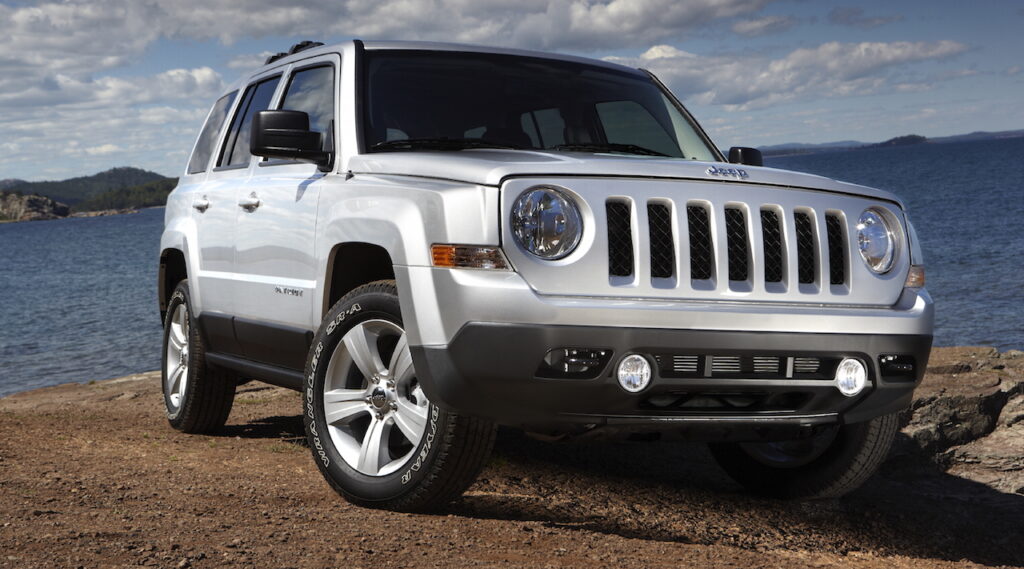Jeep Grand Cherokee PCM problems can cause various issues with the vehicle’s performance and functionality. We will explore the common problems associated with the PCM (Powertrain Control Module) in Jeep Grand Cherokee models and discuss potential solutions to rectify these issues.
Whether it’s experiencing engine misfires, a check engine light, or difficulty starting the vehicle, understanding these PCM problems can help Jeep Grand Cherokee owners effectively diagnose and fix their vehicle’s performance issues. So, let’s delve into the details of Jeep Grand Cherokee PCM problems and find out how to resolve them.
Table of Contents
ToggleCommon PCM Problems
When it comes to the Jeep Grand Cherokee, Common PCM Problems can affect its performance. Below are some well-known issues to look out for:
Engine Misfiring
If the PCM malfunctions, the engine may misfire, causing a rough idle or stuttering acceleration.
Hard Starting
A faulty PCM can lead to hard starting, resulting in difficulties starting the vehicle or frequent stalling.
Stalling
Stalling is a common symptom of problematic PCM, where the engine suddenly stalls while driving or idling.
Reduced Fuel Economy
Reduced fuel economy is often linked to PCM issues, causing the vehicle to consume more fuel than usual.

Symptoms Of A Faulty PCM
When your Jeep Grand Cherokee’s Powertrain Control Module (PCM) malfunctions, it can cause a variety of issues. Understanding the symptoms of a faulty PCM is crucial for prompt diagnosis and resolution.
Check Engine Light
An illuminated Check Engine Light is one of the primary indicators of a faulty PCM. The light may appear solid or flashing, signaling potential problems that require attention.
Reduced Performance
Reduced performance such as sluggish acceleration or difficulty shifting gears can be attributed to a malfunctioning PCM. This can result in a lack of power and overall driving discomfort.
Erratic Or Inaccurate Gauges
Erratic or inaccurate gauges on your dashboard, such as the speedometer or fuel gauge behaving unpredictably, can be linked to a faulty PCM. These inconsistencies may lead to confusion while driving.
Electrical Issues
Electrical issues like sporadic stalling, difficulty starting the vehicle, or random engine cut-offs are common signs of a problematic PCM. These issues can disrupt the vehicle’s normal functioning.
Causes Of PCM Problems
Common causes of PCM problems in Jeep Grand Cherokees include electrical faults, sensor malfunctions, and software glitches. These issues can lead to engine performance issues, transmission problems, and overall drivability concerns. Regular maintenance and prompt diagnostics are crucial in preventing PCM issues.
The Powertrain Control Module (PCM) is an essential component in the functioning of a vehicle, including the Jeep Grand Cherokee. It acts as the brain of the car, controlling various systems such as ignition timing, fuel injection, and emissions. However, like any electronic device, the PCM can encounter issues, leading to performance problems. It is crucial to understand the causes of these problems to diagnose and resolve them effectively.
Water Damage
Water damage is a common cause of PCM problems in the Jeep Grand Cherokee. Water can enter the engine compartment through various avenues, such as rain, flooding, or even washing the vehicle. When water reaches the PCM, it can cause corrosion, short circuits, and lead to malfunctions. The sensitive electronic components within the PCM can be easily damaged by water, disrupting its normal functioning.
Electrical Surges
Electrical surges can occur due to voltage fluctuations in the vehicle’s electrical system. These surges can be caused by faulty alternators, loose connections, or power spikes during jump-starting. When an electrical surge reaches the PCM, it can cause damage to the circuits and components, leading to malfunctioning. This can result in various symptoms such as engine misfires, poor performance, or even complete failure in extreme cases.
Software Glitches
The PCM relies on complex software to interpret data and control the vehicle’s systems. However, software glitches can occur due to programming errors or conflicts, leading to PCM problems. These glitches can cause the PCM to misinterpret data or fail to execute commands correctly. As a result, the vehicle may experience issues like stalling, rough idling, or even loss of power. Updating the PCM software with the latest manufacturer-approved version can often resolve these glitches.
Faulty Wiring
Faulty or damaged wiring can also contribute to PCM problems in the Jeep Grand Cherokee. Improperly insulated wires, frayed cables, or loose connections can cause electrical signals to be distorted, leading to communication errors within the PCM. These errors can disrupt the proper functioning of the vehicle and trigger warning lights on the dashboard. Checking and repairing faulty wiring is essential to ensure the smooth operation of the PCM. In conclusion, PCM problems in the Jeep Grand Cherokee can arise due to various causes, including water damage, electrical surges, software glitches, and faulty wiring. Understanding these causes can help diagnose and resolve issues promptly, ensuring the PCM’s efficient functioning and maintaining the vehicle’s overall performance. Regular maintenance and inspections can significantly reduce the likelihood of PCM problems and prolong the lifespan of your Jeep Grand Cherokee.

Diagnosing PCM Problems
Diagnosing PCM problems in your Jeep Grand Cherokee is crucial for maintaining its performance. The powertrain control module (PCM) is the central computer that manages various engine and transmission functions. Identifying and resolving PCM issues promptly can prevent further damage to your vehicle. Here are the essential steps for diagnosing PCM problems.
Obd-ii Scanner
Using an OBD-II scanner is the first step in diagnosing PCM problems. This device allows you to retrieve diagnostic trouble codes (DTCs) from the PCM. Connect the OBD-II scanner to the vehicle’s onboard diagnostic port and follow the prompts to retrieve the codes. These codes provide valuable insights into the specific issues affecting the PCM and other related systems.
Visual Inspection
A thorough visual inspection of the PCM and its connections is essential. Check for signs of corrosion, loose connections, or physical damage. Look for any frayed wiring or burnt areas near the PCM. Ensure that the PCM and its wiring harness are securely in place and free from any obstructions or obstructions. Addressing any visible issues can prevent further complications.
Wiring Checks
Conducting wiring checks is crucial to identify any potential issues that may be affecting the PCM’s performance. Inspect the wiring harness for any signs of wear, damage, or improper connections. Use a multimeter to test the continuity and voltage levels at various points along the wiring harness. Ensure that the wiring meets the manufacturer’s specifications.
Component Testing
Testing the individual components that interact with the PCM is essential for a comprehensive diagnosis. Utilize specialized diagnostic tools to test the sensors, actuators, and other related components. Pay close attention to components such as the crankshaft position sensor, camshaft position sensor, and throttle position sensor. Any faulty components can directly impact the PCM’s performance.
Repairing PCM Problems
In troubleshooting Jeep Grand Cherokee PCM problems, it is essential to address issues such as voltage irregularities, software glitches, and defective ECM components. A professional diagnostics tool can help pinpoint the root cause of the problem and allow for efficient repairs to be made, ensuring the vehicle’s optimum performance.
Repairing PCM Problems Dealing with Jeep Grand Cherokee PCM problems can be frustrating, but knowing how to repair them can save you time and money. Reprogramming, replacement, and utilizing a PCM repair service are three common methods to address these issues effectively. H3 headings adhering to HTML syntax: Reprogramming Reprogramming the PCM can often resolve existing issues without needing to replace the entire unit. Through reprogramming, the PCM’s software can be updated to address bugs and optimize performance. Replacement In some cases, PCM problems may require a complete replacement. This involves installing a new PCM unit, which will require coding and programming to ensure compatibility with your vehicle. PCM Repair Service If reprogramming or replacement are not viable options, utilizing a specialized PCM repair service may be the best course of action. These services can diagnose and repair specific issues, such as damaged circuitry or malfunctioning components within the PCM. By understanding these options for repairing PCM problems in your Jeep Grand Cherokee, you can navigate issues effectively and ensure the optimal performance of your vehicle.
Preventing PCM Problems
The PCM (Powertrain Control Module) is a critical component of your Jeep Grand Cherokee’s engine management system. However, like any other part, it is susceptible to problems that can disrupt your vehicle’s performance. Fortunately, there are steps you can take to prevent PCM problems and ensure your Jeep stays on the road without any hiccups. In this section, we’ll discuss three essential measures you can implement: regular maintenance, protective covering, and avoiding water exposure.
Regular Maintenance
Maintaining your Jeep Grand Cherokee regularly helps keep the PCM and other crucial systems in optimal condition. By adhering to your vehicle’s manufacturer-recommended maintenance schedule, you can minimize the risk of PCM issues. Ensure that you:
- Change the engine oil and filter at the specified intervals to prevent contaminants from affecting the PCM.
- Inspect and clean the air filter, as a clogged or dirty filter can put additional strain on the PCM and impact its performance.
- Monitor the coolant level and quality to avoid overheating and potential damage to the PCM.
- Regularly inspect the battery and charging system to ensure a stable voltage supply to the PCM.
- Keep all electrical connections clean and secure, as loose or corroded connections can cause PCM malfunctions.
Protective Covering
Shielding the PCM from external elements helps safeguard it against potential issues caused by dust, moisture, and heat. Consider these protective measures:
- Install a PCM protective cover to shield it from dust and debris that can accumulate over time and hinder its performance.
- Use insulating materials or heat shields to protect the PCM from excessive heat, especially if you frequently drive in extreme temperature conditions.
- Ensure that the PCM’s location is not in direct contact with water or vulnerable to water splashes from the road.
Avoiding Water Exposure
Water exposure is a common cause of PCM problems in Jeep Grand Cherokees. Here are some precautions to take:
- Steer clear of waterlogged areas or flooded roads that can submerge the PCM and lead to severe damage.
- Be cautious when driving through rain or snow, as moisture can seep into the engine compartment and affect the PCM’s functionality.
- Avoid pressure washing the engine compartment, as high-pressure water can force its way into the PCM housing and cause electrical issues.
- If you notice any signs of water penetration or damage, such as corrosion or dampness around the PCM, consult a professional technician to address the problem promptly.
By following these preventative measures, you can significantly minimize the risk of PCM problems in your Jeep Grand Cherokee, ensuring a smoother and more reliable driving experience. Remember that prevention is always better than cure when it comes to PCM issues. Take the necessary steps to protect and maintain your PCM regularly, and you’ll enjoy trouble-free journeys in your Jeep for years to come.
Cost Of PCM Repair
When addressing Jeep Grand Cherokee PCM problems, understanding the cost of PCM repair is crucial.
Repair Vs. Replacement
It’s vital to compare repair and replacement options for the PCM.
Labor Costs
Consider the labor costs involved in resolving PCM issues.
Oem Vs. Aftermarket Pcm
Differentiate between OEM and aftermarket PCM parts for your Jeep Grand Cherokee.
Frequently Asked Questions For (Jeep Grand Cherokee PCM Problems)
What Are The Common PCM Problems In Jeep Grand Cherokee?
The common PCM problems in Jeep Grand Cherokee include stalling, engine misfires, and communication failures.
How Can I Diagnose PCM Problems In My Jeep Grand Cherokee?
You can diagnose PCM problems in your Jeep Grand Cherokee by checking for error codes using a diagnostic scanner.
What Are The Signs Of A Failing PCM In A Jeep Grand Cherokee?
Signs of a failing PCM in a Jeep Grand Cherokee include engine performance issues, warning lights, and difficulty starting the vehicle.
Can I Fix PCM Problems In My Jeep Grand Cherokee By Myself?
You can fix some PCM problems in your Jeep Grand Cherokee by replacing damaged components, but complex issues may require professional help.
Conclusion
To sum up, the Jeep Grand Cherokee PCM problems can be quite frustrating. However, by identifying and addressing these issues early on, you can ensure the smooth functioning of your vehicle. Regular maintenance, prompt repairs, and seeking professional help can go a long way in resolving these problems effectively.
Stay vigilant and take the necessary steps to keep your Jeep Grand Cherokee running smoothly for years to come.





